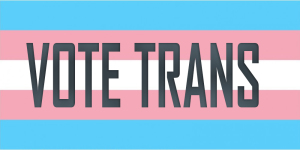
New InternetLab Reports: Internet, Voices and Votes
Election periods are moments of broadening the debates in the public sphere: because of campaigns and dispute of different political projects, stakeholders of different fields and sectors position themselves and debate social issues.
Whether as a form of campaign articulation with multipliers (the paradigm is Barack Obama’s 2008 campaign), or as a special moment for the political debate among citizens (possibly only potentializing what already goes on daily), the Internet is a privileged space for broadcasting discourses. It is a privileged space of analysis not only by its most commented aspect — that anyone can talk to everyone, without intermediates, and in principle anyone can get attention without the endorsement of any media outlet — but also by specific aspects of the functioning of the chosen platforms, like Facebook and Twitter. Therefore, pre-election debates are now marked by citizen campaigns, orchestrated attacks, hashtags, filter bubbles and content removals, ordered by judges or not.
Over the last elections in Brazil, the Internet was already a space of intense articulation and conflict, in dynamics that in general transcend the “only virtual”. It was also quite clear that the issues related to gender, race, regional origins and social class were in the center of discursive disputes, whether by the common occurrence of discrimination cases, or by discussions about implementing policies directed to subalternized groups, or even by the intense activism of social movements, aiming to insert identitary demands into the public agenda. However, it is hard to reconstruct the general lines of these happenings, since they are being documented in a sparse manner in the news, social networks and in blogs.
Attentive to this, researches of the “Internet & Gender, Race and Other Social Markers” at InternetLab will do a follow-up of the debates surrounding these topics in the social networks during the 2016 municipal elections period. The aim is to monitor these discussions and contribute to a systematic visibilization of the subjects in the public sphere and to build a memory that can collaborate with the elaboration of reflections in the present and future election contexts.

REPORT #1
Mobilization on the Internet, Identity and Institutions
The first days of campaign for the municipal elections have already shown us that there won’t be a lack of analysis material for the Report: Internet, Voices and Votes. The election campaign was released on August 16th (and 26th for television); since then, there has been issues dignified of attention involving gender, sexuality and race online.
Mobilization to overcome barriers: Vote Trans
The first of those issues was an articulation surrounding the candidatures of transvestites, transsexual men and women in a particular way, but very similar to the existing Vote LGBT: it is the Vote Trans initiative. Broadcasted on the 22nd, it consists on the promotion of a list (unders construction) of trans candidates, from different parties and regions of the country, and that, aside from making them visible, shines a light under electoral problems specific to this group. The idea seems to bet on the potential of Internet mobilization, especially inside the social networks, to “facilitate the choice, promote and also to follow the campaign of your favorite candidate”.
Among the obstacles faced by trans candidates (both men and women) is the use of their “social name”, that is, the one with which they identify themselves and that not necessarily coincides with the name on their public records. Therefore, the difficulty begins with the register of the candidature, that must be done with the name registered on the public records. Even if articles 30 and 31 of the nº23.455/15 Resolution (which dictates the rules on candidate registration for 2016) allow that the name shown on the urns is different from the one in the candidate’s documentation (and, thus, from the name that should be used on the registration), such permission comes accompanied of some wide restrictions (one can adopt another name for the urns “as long as there isn’t doubt about their identity, it doesn’t cause indecent exposure and isn’t ridiculous or irreverent”), which can open way for questions and impugnations by the authorities. The regularization of the social name is far from being settled in Brazil. The matter is not regulated by an specific law, but is running on the House of Representatives since 2013 and the João Nery Law (bill 5002/2013), that aims to ensure the trans population the recognition of their gender identity (and even the rectification of the name).
The difficulties in the use of the social name and the demand to inform the sex according to the civil records generate significant consequences in the realm of candidacies: for example, the trans and transvestites candidates may not be able to fit in the feminine quotas of 30% inside each party (Law nº 9504, article 10, 3rd paragraph, altered by the Electoral Reform of 2009). The absence of legislation that speaks on this theme ends up creating the judicialization of some of those cases: by the end of July, some media outlets reported the case of the city council candidate Valeria Rodrigues, for the PCdoB party in São Paulo, who was the first transsexual woman to officialize a campaign in the São Paulo City Council under the feminine quota established by election legislation; to do this unprecedented act, Valéria had to open a process in Justice.

Beyond the embarrassment and the notice that determined identities are not legitimate, the non-regulamentation in this sense causes other problems when officializing the candidacy: name and picture incompatibilities and the non-liberation of the legal person registry for the release of campaign material are reported by candidates as “cystem barries” (intentionally written with “c” to address cisgender people) to the trans bodies, as told by Indianara Siqueira, candidate for the Rio de Janeiro City Council, who has strategically used the Internet as a mobilization means.
Activists have also been reporting, over the last elections, difficulties and resistances in the party relations. It is in this context of innumerous difficulties and of candidatures, in general, marked by low budgets, that collective efforts like Vote Trans gain relevance.
Mobilization to reclaim provisions: the Eduardo Paes case
The second event observed in this initial period was a mobilization, on the social networks, against a video that, although it’s not dated, was published and viralized on August 27th: the mayor of Rio de Janeiro, Eduardo Paes (PMDB), shows the apartment donated to a black woman and tells her to “screw a lot in this tiny bedroom”, following that by similar statements to a crowd watching the inauguration, suggesting that they get in line. Pedro Paulo, candidate for the Rio de Janeiro City Hall for PMDB, is also on the recording. By the end of August 29th, the main video containing the scene on YouTube had more than 34 thousand visualizations, and the topic had gained also the traditional media, with articles on G1, Folha, among others.
The video generated controversy on the social networks, between those who defended the mayor for what they consider a “mere joke” and those who saw the action as a aggression that could not even be separated from the fact that it was directed towards a black woman. Djamila Ribeiro, scholar and activist that nowadays is on the Secretary for Human Rights of the São Paulo City Hall, rejected the characterization of the case as a “slip”, connecting the “joke” to the aggravated violence that the black woman is submitted to: “a black woman is not human, she is ‘hot’, ‘lascivious’, ‘the one made only for sex and not to show to family’. The group of women who are the most raped in Brazil because these constructions over their bodies are made to justify the violence they suffer”, she affirms in an article for Carta Capital.

This perception is also revealed in personal profiles of black women. Rosane Borges, journalist, professor at the Londrina University and post-doctorate student at USP, stated in a public post on August 28th:
We do not have any doubts that Paes would not speak in that way to a white middle-class or elite white woman. He would never dare to cross boundaries, to not follow the protocol of the circumstance if he considered to be dealing with equals. And why does he do this? From the place where he stands (mayor of one of the biggest cities of the country, male, cis, white, privileged class), he thinks the dialog to a black woman can only be effective from a frame of reference that feeds on the imaginary over “us” and “them”. And which is this frame? The one boarded since the slavery years, a time in which masters of slaves designated as the era of social intoxication, that black women were made only to work, work and… screw, as Paes updates us. Heir of the slavery regimes practises and discourse, the mayor of Rio de Janeiro violents, humiliates, destitutes and dehumanize Rita. He does not engage with her in any conversation that would in fact interest for the moment (the importance of the apartment delivery, the projections of the City Hall for the habitation area…). Rita is not seen as a citizen, a person with whom to engage with in a humanizing dialog. On the contrary, it serves to reaffirm her subordinate role, of non-person, of thing that, once a while, the public authorities, in a act of kindness, turns to and offers some scraps.
The positions on the Internet reverberated outside the alternative medias and social networks: on August 29th, public defendants of Rio de Janeiro — coordinators of the Center for the Defense of Women’s Rights (Nudem) and the Center Against Racial Inequality (Nucora) –, in partnership with the president of the Commission for Racial Equality of the OAB-RJ (Rio de Janeiro’s branch of the Brazilian Bar Association), published in a repudiation statement in terms similar to those of the activists. On the same day, the Regional Electoral Court of Rio de Janeiro also manifested that it would notify the mayor Eduardo Paes and the candidate Pedro Paulo. Not theming the racism of sexism, the entity solicited the identification of the date and place of the video recording, since candidates were forbidden of taking part in public inaugurations from June 2nd. In case the video was recorded after this date, Pedro Paulo can have his candidacy register revoked and become ineligible for eight years, and Eduardo Paes, aside from also becoming ineligible for the same time, can be fined and have to respond for administrative improbity.
Final Impressions
Both cases reflect the use of Internet mobilization as an effort to overcome institutional barriers, as the result of the tensioning of institutions like the OAB, Public Defender’s Office and Regional Electoral Court in a way to make visible topics related to identities and political and social rights. These cases of actions on social networks around identity issues seem like ones that may eventually have consequences on the profile of our legal system, whether by positively influencing the course of candidacies, or by damaging the course of others. Let’s follow.
Team responsible for the content: Mariana Giorgetti Valente (mariana@internetlab.org.br), Natália Neris (natalia.neris@internetlab.org.br), Juliana Pacetta Ruiz (juliana.ruiz@internetlab.org.br) and Clarice Tambelli (clarice.tambelli@internetlab.org.br). Collaboration: Dennys Antonialli
Translation: Ana Luiza Araujo